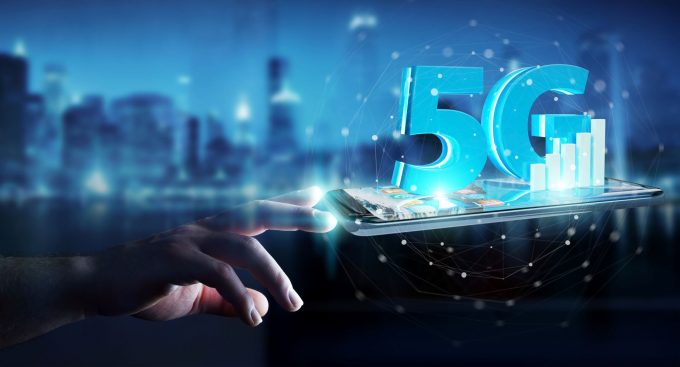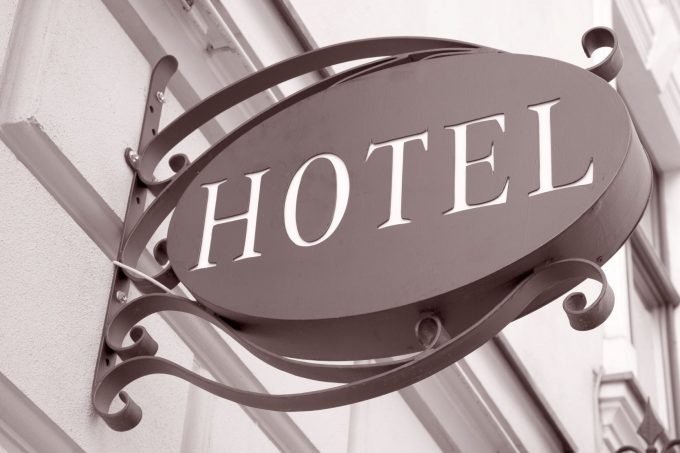
The new wifi standard expected by guests
Most accom guests no longer consider free wifi as a distinguishing perk. In fact, the idea of being charged for something so ubiquitous is now a major turn-off. But provision of free wifi alone is not enough.
According to a survey by Openkey, an overwhelming 98 percent of guests expect high-speed wifi. For accom, a fast and reliable connection is essential to meet the needs of their guests constantly connected lifestyles. Anything less leaves the door wide open for major guest discontent.
The demand for great wifi
According to GlobalWebIndex, the average consumer owns 3.2 internet-enabled devices. When visiting a hotel, most people bring their devices with them.
Instead of pay-per-view entertainment, they’re watching Netflix and Stan on their tablets. While relaxing by the pool, smartphones are routinely whipped out to check social media, plan trips and check out restaurant reviews.
All of this puts a huge strain on a hotel’s network infrastructure. Suffice to say, an outdated network just won’t cut it anymore. Slow internet speeds and poor coverage are almost guaranteed to irritate guests and potentially earn a batch of negative reviews on TripAdvisor.
I often hear hoteliers and owners say: “I can’t wait until we have 5G”, implying that this will solve all of their problems.
How will 5G impact the hotel industry?
It’s hard to ignore the huge hype surrounding the 5G network. It’s estimated that 5G will deliver speeds of around 10 gigabits/second to a phone, which is 600 times faster than the typical 4G speeds on today’s mobile phones.
But will 5G replace the need to provide wifi in the hospitality sector? The short answer is, no. At least, not initially.
First, it will take a few years for the 5G network to be fully rolled out. In 2019, coverage will be restricted to capital cities and certain regional areas. However, the more significant barrier for mass adoption is a technological one.
5G uses much higher frequencies than 4G, and this higher frequency is more susceptible to being blocked by common objects, such as walls, windows, and other common building materials. As a result, this may lead to 5G ‘black spots’ within a hotel. If you have poor 4G coverage in your hotel now, it will be worse with 5G.
While offering 5G will certainly become a significant selling point, it’ll be difficult to implement throughout a property.
So hotels will still have to offer wifi for the foreseeable future. That said, the standard of that wifi will need to improve.
So what level of wifi should your hotel offer?
As consumers start to enjoy 5G in their own homes, they’ll also come to expect that hotels offer the same internet speeds. But there’s something else to consider.
The consumption of on-demand content continues to rise and the next few years will see a huge leap in the number of internet-enabled devices including smart watches and fitness trackers. As a result, hotels can expect more and more travellers to bring their own entertainment with them.
Summed up, being able to offer 5G and high-speed wifi are going to be integral to the modern-day hotel experience. But having a secure network will also be vital.
Around the world, hotels have been targeted by acts of cybercrime on an unprecedented scale. So in addition to fast and reliable wifi, customers will need to feel reassured that their connection is secure.
Hotspot 2.0 offers a potential solution to these problems.
Harnessing hotspot 2.0
The seamless wifi people often enjoy at home is hard to replicate in a hotel. Frustrating login processes and an unreliable connection create hassle and disrupt the guest experience.
Of course, your property’s network infrastructure is far more complex than a domestic set-up, and it needs to cope with far more devices. Hotspot 2.0 offers a way to improve the overall wifi experience through a form of frictionless connection.
After a one-time installation of the Hotspot 2.0 profile to their device, a guest can return to your property and instantly connect to the wifi. In fact, they can instantly connect to the wifi at any property within your hotel chains brand.
This connection is also secured by WPA2 – a form of encryption for wireless networks based on the Advanced Encryption Standard technology (AES).
In addition to a speedy and secure network, Hotspot 2.0 allows hotels to drive revenue by sending “timely and context-specific guest messages”, which can be sent via in-app push notifications, SMS messages or emails.
Why an investment in great wifi pays off
Providing great wifi is now integral to the quality of the hotel guest experience. With the rollout of the 5G network, customers will start to enjoy lightning-fast speeds in their own homes. When they check-in to a hotel, high-speed wifi will become the new minimum standard.
With more streaming services available, the rise of the smart guest room and a global surge in connected devices, investing in your hotel wifi has never been more important to meet the rising expectations of your guests.
With a great passion for all things hotels, but in particular technology and a desire to help others his role as director at Technology4Hotels allows him to do both. Brendon has worked with hundreds of hotels to help them with their in-room technology. In the last few years he has helped them to increase guest satisfaction, strengthen guest loyalty and encourage repeat bookings as well as win awards such as the best business hotel, best city hotel, best upscale hotel and best luxury hotel in Australasia. Always going the extra mile, Brendon began his hospitality career over twenty five years ago working in 5 star hotels whilst completing his Bachelor of Business in Hotel Management. He has held various management positions within 5 star hotels, worked as a consultant in both hotel feasibility and technology and has an extensive background in hotel technology.







And the gap between city and country widens again. Here (rural Victoria), we can’t even get reliable 3G. Our wireless NBN (that we pay extra for to get the highest speed connection) struggles to reach 30MB/s, there is no cable NBN here, wireless or satellite ate the only options. We used satellite for a while, but it doesn’t work when it’s raining or there’s bad weather that creates interference! City people come here expecting the same internet speeds as they get at home – it simply does not exist in the country, no matter how regularly we upgrade our systems to the latest technology, we simply cant provide what isn’t available to us by the network providers.